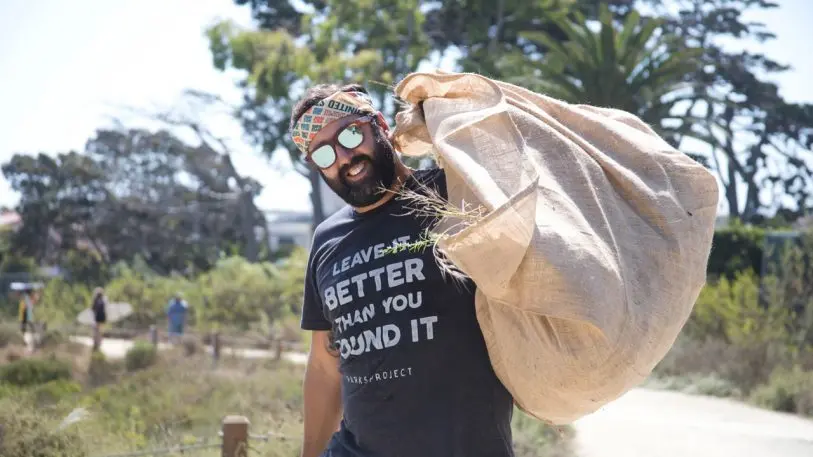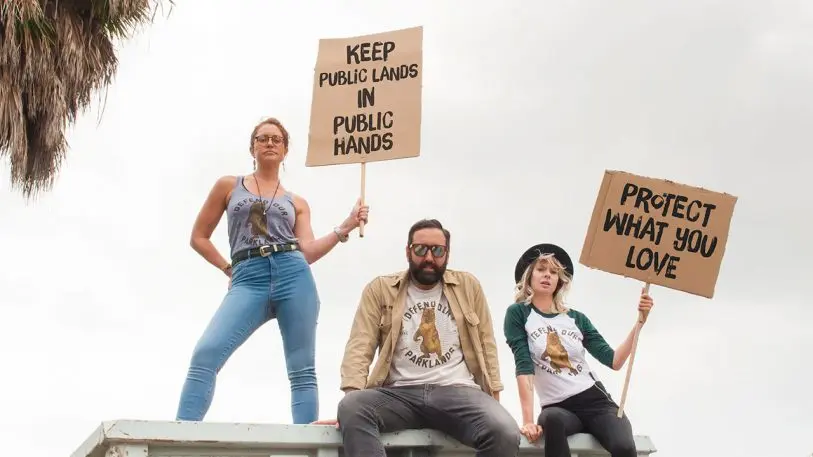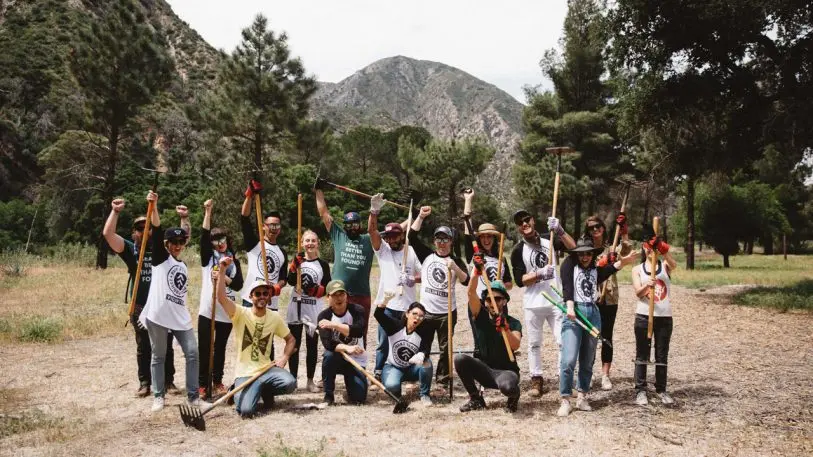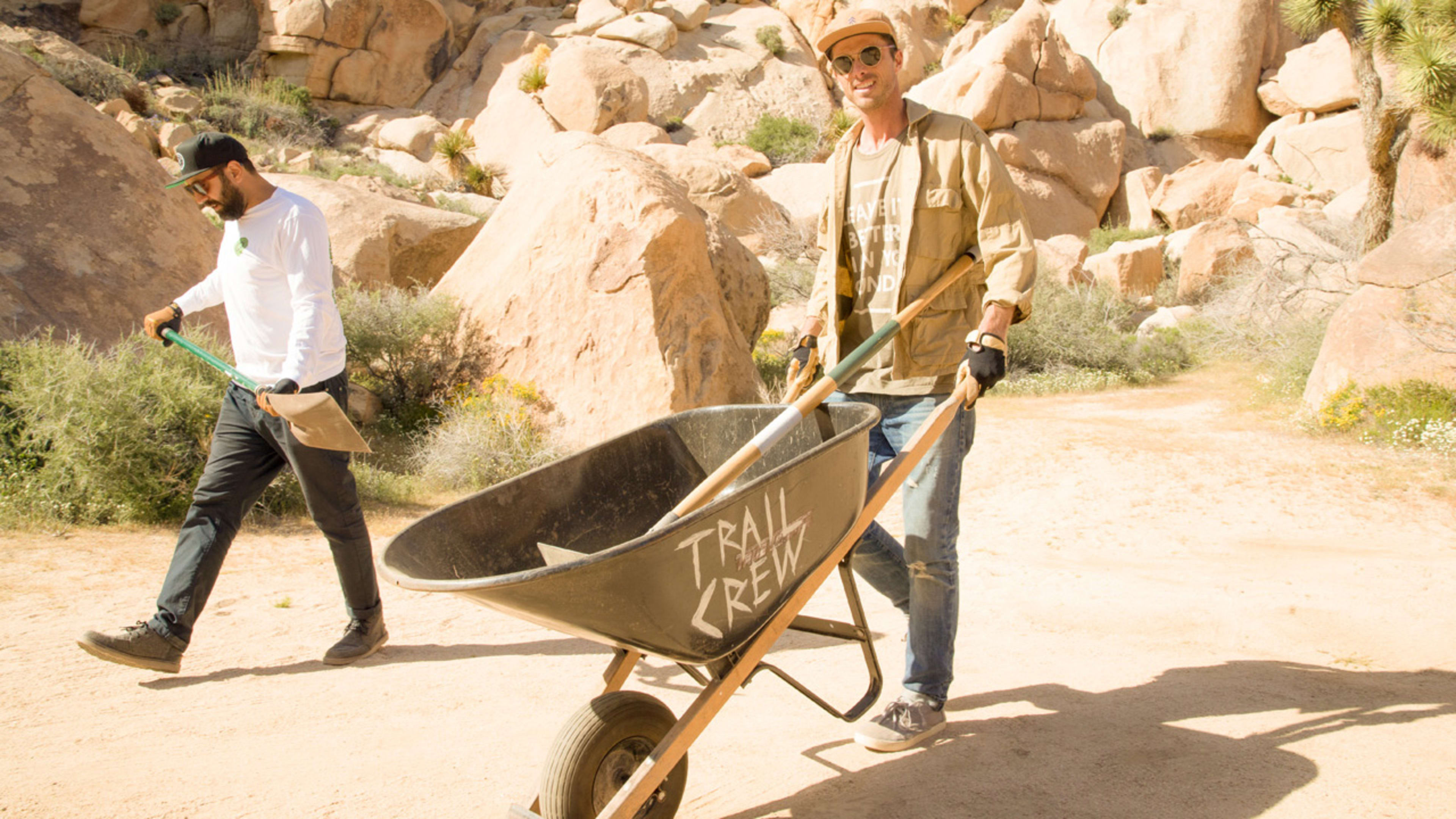In December, Patagonia blacked out its website with the statement, “The president stole your land,” after Donald Trump shrunk the size of two national monuments in Utah. REI protested similarly, saying the outdoor retailer will continue to work to protect public lands.
Under the Trump administration, the national parks have come under threat. Secretary of the Interior Ryan Zinke, who oversees the National Parks Service, has pushed to open up the land to devastating practices like mining and fracking. Meanwhile, cultural enthusiasm for the parks is at a record high: Visitors to the parks have increased by around 1.5 billion in the past five years. Zinke himself has acknowledged the parks are beginning to strain under the demand, saying in February that “our National Parks are being loved to death.”

While Zinke’s approach to helping the parks may center more around selling their resources for capital gain, businesses–particularly those with an environmental slant–are trying to use their heft to restore and preserve the lands.
One of those businesses is Parks Project, which launched four years ago as a social enterprise specifically geared at funding much-needed national parks maintenance. Founded by two former TOMS employees, the brand is very on-trend–its vintage-inspired tees, candles, and home decor would not be out of place in a hipster photo shoot (and in fact, Parks Project sells some products through Urban Outfitters). But instead of following the TOMS’ buy one, give one model, which has received criticism for failing to address the root causes of need, Parks Project cofounder Keith Eshelman decided to do things differently.

Each purchase of a Parks Project item funds a specific backlogged maintenance project. “We could’ve gone the easy route of just giving a blanket 10% of a purchase to the National Park Foundation,” Eshelman says. The foundation is the official nonprofit arm of the National Parks Service, and it allocates funds and resources to the 59 national parks and 117 monuments in the U.S. But ultimately, Eshelman wanted the funds created through the Parks Project to go toward causes that customers could connect with more directly.
The sale of Joshua Tree T-shirts, for instance, will support the planting of new Joshua trees in the park. Climate change, particularly the 2015 drought in California, decimated the rare tree’s landscape, and the species is struggling to survive. For every five T-shirts sold, Parks Project funds the addition of two additional Joshua trees (or other climate-change-endangered flora) to the park. So far, they’ve funded nearly 10,000 new plantings.
Figuring out which projects to fund via sales is a matter of collaboration, Eshelman says. Parks Project has worked out agreements with around 30 specific park conservancies so far, and those conservancies are the ones that decide which projects need the most immediate attention. In Yosemite, it’s upkeep for the roughly 800 miles of volunteer-maintained trails. In the Everglades, it’s the removal of invasive species that harm the gator population. For each park, there’s a range of products that support the particular project, and Parks Project has an official licensing agreement with the National Parks Service to use parks imagery in their product designs.
While around 50% of Parks Project’s sales come directly from their website, they’re also launching a new deal with REI this month to boost exposure and drive more revenue to the projects. And Eshelman says that he’s hoping to increase the presence of Parks Project wares in the national parks themselves. Especially as tourism to the parks continues to rise, Eshelman wants to offer visitors high-quality goods to commemorate their visit, and a way to give back while doing so.

Ultimately, while Parks Project generates funds for neglected maintenance projects, Eshelman wants to see enthusiasm for buying parks-themed products translate into on-the-ground service. Parks Project has begun to host service days in various parks across the country, in partnership with the same parks conservancies that receive funding from sales. “There are people out there that want to help and don’t know how to,” Eshelman says. He sees Parks Project products as a link between the conservancies and people that have an interest in the parks, but don’t know how to channel it. Each purchase comes with information about the specific conservancy the item is helping, and with tips for how to volunteer.
“We don’t want people to just treat this as buying a shirt for a park they’ve been to,” Eshelman says. “We want people to get involved in what the parks are.” So much of the national parks maintenance, Eshelman says, is carried out by volunteers, and for the public lands to continue to persevere through poor national policies, climate change, and tourism, we need a new generation of people who are engaged with doing the work to protect them.
Recognize your brand’s excellence by applying to this year’s Brands That Matter Awards before the early-rate deadline, May 3.
